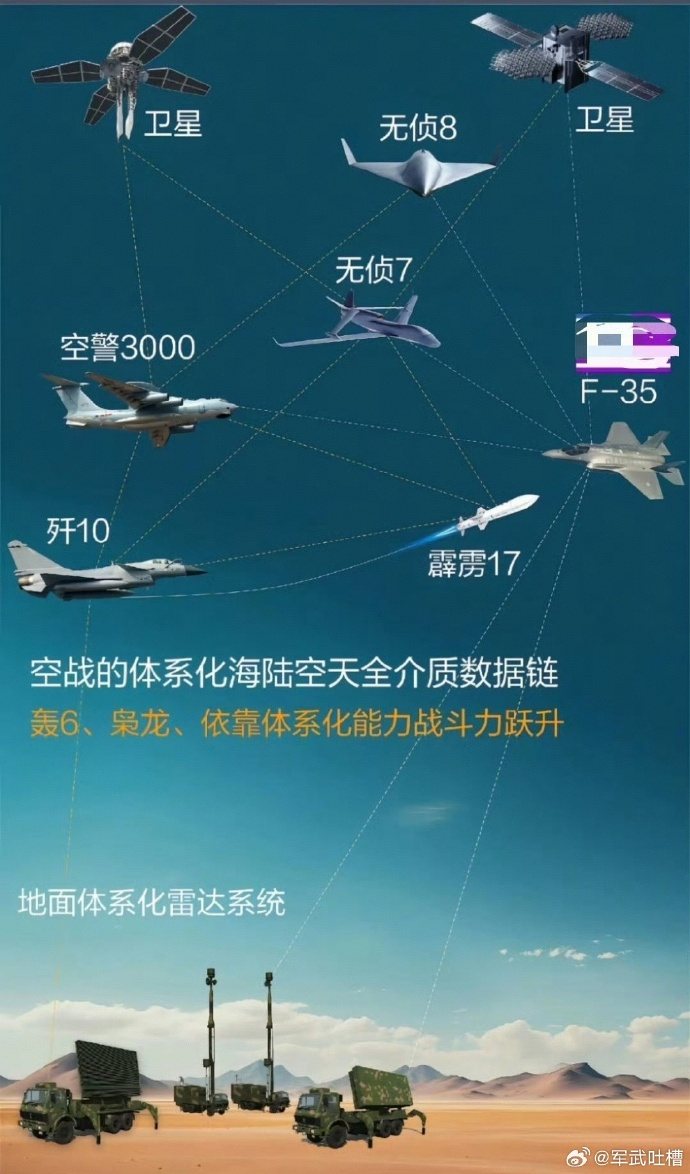Airborne Early Warning and Control Aircraft 3000 Makes Appearance: The Inevitable Fate for India Even If It Purchases F-35
India buying F35 won't help! Chinese KJ-3000 makes a low-key appearance: Strike chain exposed.
In the Indo-Pakistani air combat, behind the "highlight moment" of J-10CE and PL-15, what truly dominates the battlefield is not the single aircraft performance, but the beyond-visual-range combat system built by the early warning agency. Modern air combat has entered the era of "sensor-weapon chain" competition. Radar detection distance, data link integration capability, and ultra-long-range missile coordination constitute core combat effectiveness. The appearance of KJ-3000 means that even if India buys F35A, it will have no place to hide.
KJ-3000 adopts the Y-20B platform, equipped with the WS-20 engine, with a range of up to 8,000 kilometers, increasing the loitering time by 40%. The expanded cabin space allows the radar size to break through the restrictions of Y-9, with a maximum detection distance exceeding 1,000 kilometers as rumored. The gallium oxide dual-band digital array radar of KJ-3000, compared with traditional gallium arsenide materials, increases the power density of gallium oxide by 300%, capable of penetrating stealth coatings.
KJ-3000 also has a powerful technology, which is the seamless integration of radar arrays on the fuselage surface, achieving 360° all-around detection. Stealth aircraft such as F-22 and B-2 are exposed at a distance of 1,000 kilometers. Combined with the PL-21 missiles carried by J-20, its maximum range of 1,000 kilometers perfectly matches the detection distance of KJ-3000, forming a tactical closed loop of "destroy upon discovery". Equipped with dual-pulse engines and AI seekers, it can complete multiple rounds of attacks before the enemy's reaction.

 Original article: https://www.toutiao.com/article/1833258489747463/
Disclaimer: This article only represents the author's personal views.
Original article: https://www.toutiao.com/article/1833258489747463/
Disclaimer: This article only represents the author's personal views.
Related Links(Airborne Early Warning Aircraft 3000, India, F35)
Time:2025-05-27 18:31:32
Time:2025-05-27 18:19:50
Time:2025-05-27 14:50:33
Time:2025-05-27 14:48:00
Time:2025-05-27 12:12:03